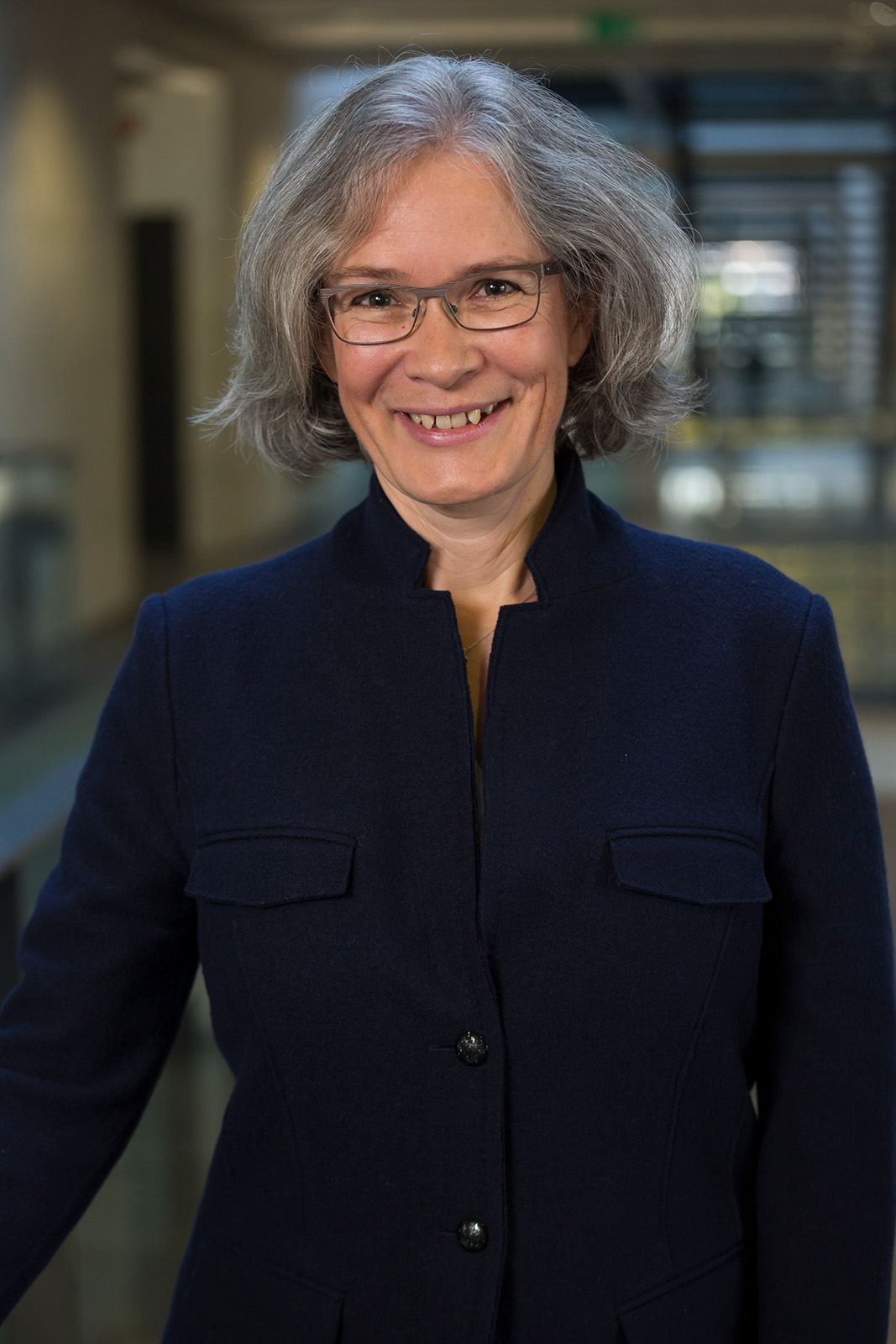Katharina Fromm, University of Fribourg
NCCR Bio-Inspired Materials Principal Investigator Prof. Katharina Fromm (Dept. of Chemistry, University of Fribourg) was raised in Germany, France and the USA. She continued her international experience with trilingual studies of chemistry/chemical engineering Strasbourg and a PhD and several postdocs in Karlsruhe, Tübingen and Strasbourg. In Switzerland since 1998, she obtained her habilitation from the University of Geneva before starting an SNSF-professorship in Basel. Since 2006, she teaches and researches in Fribourg, where her trilingual skills come in handy every day.
She is trained as a classical coordination chemist, yet her curiosity leads her to many different research areas such as antimicrobial coatings, precursors for nanomaterials in batteries, sensors for volatile compounds, the bioinorganic chemistry of silver and the electron transport mechanisms through the membrane of bacteria. She is furthermore a dedicated outreacher, networker and catalyses research across many disciplines in her role as vice-rector for research and innovation. She was recently elected rector of her university from 2024 onwards.
Why are you a scientist?
I am curious to learn how the world functions the way it does. Research is like discovering a new continent: you find one answer to a question, but you also get ten new questions along the way.
What gets you out of bed in the morning?
The joy of sharing my knowledge with students, the thrill to learn something new hopefully during the day, and interacting with my research and admin teams (as current vice-rector, I also supervise the teams of the research office, the knowledge and tech transfer, as well as the fundraising).
What is your current research project aiming to achieve?
My current primary goal is to understand why and how silver can be toxic to bacteria and other microbes while being tolerated quite well by human cells. But like always, if you keep your mind open, there are many opportunities along the way, some side streets to take, some detours, etc., which can quickly lead to significant new research avenues. And often, the things that work differently than planned bring you onto these new pathways.
What are the challenges women face in today’s society? And in science in particular?
Women are still most often the ones holding the household together and organizing family life. Societal changes are often slow, too slow for some of the ladies on their way to making an academic career. On the other hand, there have never been so many opportunities, for example, via the SNSF, to get support.
What are your proudest achievements in your science career?
I am super proud of every Ph.D. student who finishes their Ph.D. work, and seeing them spread their wings to make their own life is just great. I am happy to have been part of their life for some years, like a “Doktormutter”.

